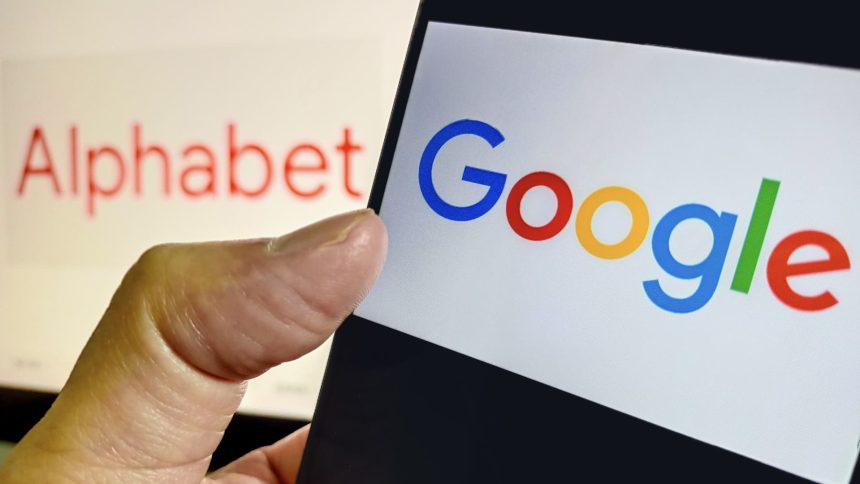Google’s latest artificial intelligence blunder that led to backlash over its Gemini image generator is one more reason why Jim Cramer is contemplating the next steps for Club holding Alphabet . Alphabet CEO Sundar Pichai called the situation “completely unacceptable” in a memo to Google staff late Tuesday. “We got it wrong,” he added after the company last Thursday pulled the AI image tool offline for further testing. The feature is designed to create images from text entered by users. Over the past week, user examples of historically inaccurate images generated by the AI went viral on social media. Pichai said in company the memo that the issue has “offended our users and shown bias.” Jim thinks Google has lost focus as it struggles to shake off the narrative that it’s lagging in the AI race. The combination of a series of AI missteps, the core advertising business softening, as well as the lack of transparency and efficiency are collectively weighing on his confidence in management’s ability to get its act together. Alphabet has become “one of the Magnificent Seven that I most want to sell,” Jim said during the Investing Club’s second annual meeting Saturday. (The stocks referred to as the Magnificent Seven are Alphabet, Amazon , Apple , Meta Platforms , Microsoft , Nvidia and Tesla . The Club owns all of them except for Tesla.) Last year, in a botched attempt to introduce its AI-powered chatbot, Alphabet rushed the rollout of Bard in response to ChatGPT from Microsoft-backed OpenAI. Since then, Google rebranded Bard as Gemini — named after the large language model that powers the chatbot. The image generator feature was launched at the beginning of February and recently came under fire from people complaining about images of historical figures — like the U.S. Founding Fathers — as people of color. GOOGL YTD mountain GOOGL stock performance year to date. Shares of Alphabet were dropping 2.5% on Wednesday, resuming a sharp slide that began last Friday when the stock declined 4.4% and lost nearly $80 billion in market value. In another development pressuring the stock, 32 media groups, including Politico-owner Axel Springer, announced Wednesday a $2.3 billion lawsuit against Google , claiming losses from the tech giant’s digital advertising practices. Alphabet’s Google also faces antitrust lawsuits from federal and state governments in the U.S. The company has consistently denied any wrongdoing. Alphabet trades at the “cheapest multiple in the Magnificent Seven,” Jim said. Cheap price-to-earnings ratios can be perceived as good in stocks believed to be undervalued. But in some cases, like this, a low tech stock P/E of 19.8 times forward earnings is more of a reflection of a lousy stock performance — down more than 2.5% year to date — and reduced earnings expectations. Alphabet’s five-year historical valuation average is 23.3. With all these things lining up against Google, Jim has been becoming increasingly wary of the stock. One month after the Club sold some shares of Alphabet along with seven other 2023 big tech winners, Jim pondered whether the portfolio needs to own all of the Significant Six. At the time, he was less than thrilled with the company’s latest earnings. While beating estimates on quarterly earnings and revenue , the ad sales line item came up short. “They have theoretically the best place to advertise in the world and they’re not doing well,” Jim said at the Club meeting Saturday. Jim has also grown frustrated with management not taking better advantage of advertising opportunities for its NFL Sunday Ticket package. He also called out Google’s inability to properly monetize the Sunday Ticket on YouTube TV as “Google’s biggest fiasco.” YouTube has a multiyear agreement with the National Football League to exclusively distribute the Sunday Ticket to American viewers. Management has not been forthcoming with YouTube’s Sunday Ticket revenue, signups, and engagement data. “It’s bad enough that they’re not executing well, but they’re also not being transparent” Jim argued. Wall Street echoes our transparency concerns. In a Tuesday note, Bernstein called Alphabet “the hermit kingdom,” and said the company’s “earnings calls offer no guidance, cryptic commentary, and the Q & A is a waste of time.” Jim is also uneasy about inefficiency at Alphabet and wants to see “some sort of order” at the company. The company’s investment in Waymo self-driving cars has yet to return a profit. Waymo, which started as a Google self-driving project in 2009, eventually became an independent subsidiary of Google parent Alphabet. “Self-driving cars are a way of the future … but not the way of the present,” Jim said during “Mad Money” on Tuesday evening. “How much money has been spent on Waymo? How much more will be spent?” Jim rhetorically asked. At the same time, the Club is struggling with nixing the position since we believe there could still be an opportunity if Alphabet management can course correct. It’s possible the stock could improve if the company were to take a page out of Meta’s playbook and institute a dividend and embrace more stringent efficiency goals. Meta announced its first-ever dividend while authorizing an expanded $50 billion share buyback program when reporting fourth-quarter financials on Feb. 1. That sent Meta shares up 20% the day after. The stock was right around its record closing high set on Feb. 27. Even though Alphabet stock keeps getting dinged for AI misses, Bernstein analysts “don’t subscribe to the generative AI risk to Google Search” for now. They suggest that current generative AI alternatives haven’t received enough traction, gained user trust, and lack speed, which is probably why competitors “have barely made a dent in Google’s search traffic and revenues.” To be sure, they see “mid-term competitive risk to Google search” from companies like Amazon, Walmart , and Etsy , which are strong in vertical search, known as engines that focus on a specific industry, as well as social search of platforms including TikTok, Meta and Pinterest . At the Club, we believe Google’s AI chatbot Gemini could be competitive in attracting users, but the advertising opportunity may not be the same. In a separate assessment of the disruption of generative AI on Google Search, Redburn Atlantic said concerns are “overstated,” citing the “superiority of its technology” and “strength of its market position.” The analysts predict Google “should be able to emerge as the winner” in generative AI as it incorporates the new technology into Search at a much faster rate than ChatGPT is incorporating Search into gen AI. Redburn analysts increased their revenue expectations, assuming an 11% increase in fiscal 2024 compared to the 9% consensus estimate. The firm has a buy rating on the stock and recently increased its price target to $170 per share from $165. (Jim Cramer’s Charitable Trust is long GOOGL, MSFT, META, AMZN. See here for a full list of the stocks.) As a subscriber to the CNBC Investing Club with Jim Cramer, you will receive a trade alert before Jim makes a trade. Jim waits 45 minutes after sending a trade alert before buying or selling a stock in his charitable trust’s portfolio. If Jim has talked about a stock on CNBC TV, he waits 72 hours after issuing the trade alert before executing the trade. THE ABOVE INVESTING CLUB INFORMATION IS SUBJECT TO OUR TERMS AND CONDITIONS AND PRIVACY POLICY , TOGETHER WITH OUR DISCLAIMER . NO FIDUCIARY OBLIGATION OR DUTY EXISTS, OR IS CREATED, BY VIRTUE OF YOUR RECEIPT OF ANY INFORMATION PROVIDED IN CONNECTION WITH THE INVESTING CLUB. NO SPECIFIC OUTCOME OR PROFIT IS GUARANTEED.
Google’s latest artificial intelligence blunder that led to backlash over its Gemini image generator is one more reason why Jim Cramer is contemplating the next steps for Club holding Alphabet.
Read the full article here
News Room




